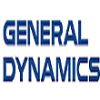This paper addresses the problem of generating dynamically admissible trajectories for control tasks using diffusion models, particularly in scenarios where the environment is complex and system dynamics are crucial for practical application. We propose a novel framework that integrates system dynamics directly into the diffusion model's denoising process through a sequential prediction and projection mechanism. This mechanism, aligned with the diffusion model's noising schedule, ensures generated trajectories are both consistent with expert demonstrations and adhere to underlying physical constraints. Notably, our approach can generate maximum likelihood trajectories and accurately recover trajectories generated by linear feedback controllers, even when explicit dynamics knowledge is unavailable. We validate the effectiveness of our method through experiments on standard control tasks and a complex non-convex optimal control problem involving waypoint tracking and collision avoidance, demonstrating its potential for efficient trajectory generation in practical applications.
翻译:暂无翻译




